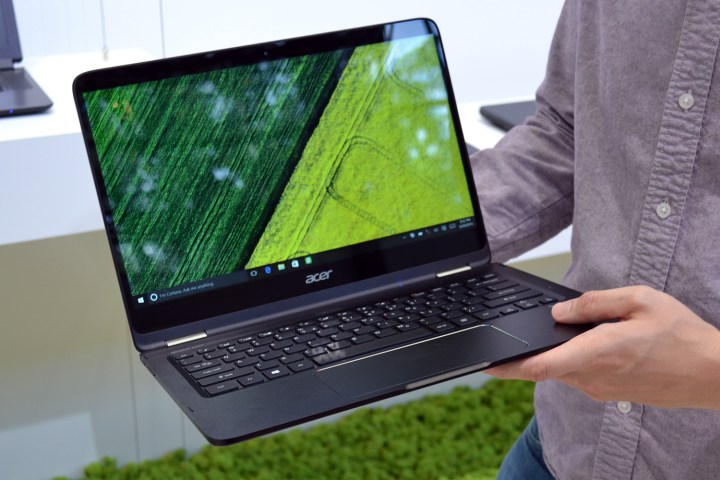
The Acer Spin 7 and its impossibly thin design were awarded the CES 2017 Innovations award and it is easy to see why. The Spin 7 was shown off earlier in 2016 at IFA, where it made a splash with its seventh-generation Kaby Lake processor and subtle hinge design.
Designed from the ground up to be the thinnest 2-in-1 on the market, the Acer Spin 7 is remarkably fast for such a compact notebook. Boasting an Intel Core i7-7Y75 processor, 8GB of LPDDR3 RAM, and a 256GB SSD, the Acer Spin 7 is small in size but offers up impressive performance chops and eight hours of battery life.
To be fair, though, the Spin 5 is no slouch either. Also hitting store shelves on Wednesday, the Spin 5 takes a step back from the impressive specs of its larger cousin to embrace a more budget-friendly set of internals and a slight bump to battery power.
The Spin 5 can reportedly last for about 10 hours on a single charge and has an Intel Core i5-6200U processor and a standard 256GB SSD — all starting at $650. That is about half the starting price of the Acer Spin 7.
With the release of the new MacBook Pro and a handful of other premium ultra-thin laptops, it is going to be a competitive holiday shopping season. But considering the Spin 7 and Spin 5 are hitting store shelves, it looks like Acer is well positioned to take advantage of the appetite for ultra-thin, ultra-light 2-in-1 notebooks that won’t break the bank.
Editors' Recommendations
- Acer Chromebook Spin 514 hands-on: Faster, thinner, and pricier
- Acer’s 5G Spin 7 is the world’s first laptop powered by the Snapdragon 8cx Gen 2


